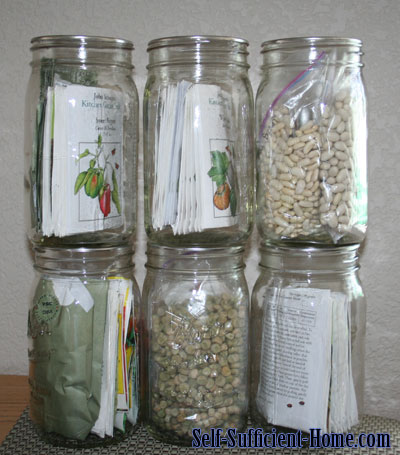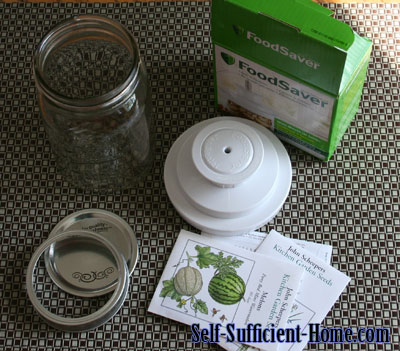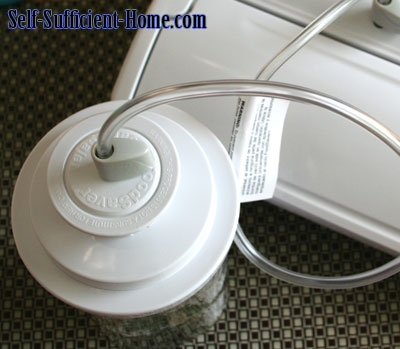Every spring we invest in a variety of garden seeds, plant as much as we can fit into our garden, and stash the remaining seeds. When the seeds are pulled out the following spring I always question how viable they are after being stored in a ziplock bag in the pantry all summer and winter. So, the challenge is how to store garden seeds to maximize shelf life.
The 3 most important factors in seed storage are moisture, light and temperature.
Seeds germinate in warm, moist, and bright environments. Therefore, to successfully store seeds a cool, dry, and dark environment must be created.

The amount of light seeds are exposed to is simple to control by the container used to hold the seeds as well as the location of storage. But consider the temperature and humidity fluctuation experienced over the course of a year in a house. One of the most critical factors of long term seed storage is consistency. The goal is storing seeds in an airtight, controlled environment.
My solution is this: seeds vacuum sealed inside mason jars then stored in a cabinet in the basement, which maintains a fairly constant temperature, or in the refrigerator.

I used wide mouth mason jars and the wide mouth jar sealer attachment for the food saver vacuum sealer.
The process is simple. Place seed packets into jar, a desiccant pack could also be added to remove moisture if you’re concerned about excessive moisture, place the lid on the jar (the screw top is NOT used for this process), place the jar sealer attachment onto the mason jar, attach hose to vacuum sealer, seal. This method also takes care of the worry of insects and rodents looting the seed supply.

Once sealed, the jar sealer attachment is removed and the vacuum seal remains intact.
Choose your storage location based on how long you want to store your seeds and whether or not you will be accessing these seeds occasionally. As I mentioned earlier, fluctuations in temperature and humidity can destroy seeds. Therefore, if you plan to remove seeds each growing season, or add seeds from your crop you’ve just harvested, freezing your vacuum sealed seeds may not be the best option. Consider the swing in temperature and humidity each time seeds are removed from their storage location to be handled.
For this reason, we will store our seeds in the basement which ranges from 45-55 degrees because we will be fiddling with the seeds a few times a year. The refrigerator is also a great option if stored in a way that the frequent light exposure won’t reach the seeds.
If, however, your goal is to the seal and store for 10+ years. Freeze away.
Now that your vegetable seeds are stored in the proper conditions, how long can you expect your seeds to last? I’ve found this chart

Source: www.growingtaste.com
How do you store your garden seeds from year to year? Share your method!
 Timberline Homestead A self sufficient homesteading life
Timberline Homestead A self sufficient homesteading life
Brilliant! Thank tou!
How about storing them in jars inside a canning house made from cinder block & gravel flooring, where there is no light, slight moisture and the temp does flux from 50 to 70 thru out the year? Where can one purchase the jar sealer? Thank you.
What a great idea! I have never thought of storing seeds this way and I usually have seeds all over the cupboard because of it.
As a home brewer I have on hand a fairly large canister of CO2. Would filling a seed jar with this carbon dioxide gas help extend the life of seeds? How about preserving dried foods like tomatoes, carrots, apples etc?